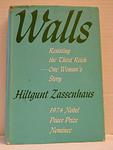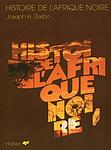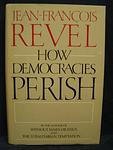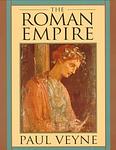The Greatest French, German "Nonfiction, History" Books Since 1970
Click to learn how this list is calculated.
This list represents a comprehensive and trusted collection of the greatest books. Developed through a specialized algorithm, it brings together 300 'best of' book lists to form a definitive guide to the world's most acclaimed books. For those interested in how these books are chosen, additional details can be found on the rankings page.
Genres
The category of "History" in books refers to the study and interpretation of past events, societies, and cultures. It encompasses a wide range of topics, including political, social, economic, and cultural developments, as well as the lives of individuals and groups who have shaped the course of history. History books can be written from various perspectives and may focus on specific time periods, regions, or themes. They aim to provide readers with a deeper understanding of the past and its impact on the present.
Countries
Date Range
Reading Statistics
Click the button below to see how many of these books you've read!
Download
If you're interested in downloading this list as a CSV file for use in a spreadsheet application, you can easily do so by clicking the button below. Please note that to ensure a manageable file size and faster download, the CSV will include details for only the first 500 books.
Download-
1. Discipline and Punish by Michel Foucault
This book delves into the historical evolution of the penal system, examining how Western societies have transitioned from a regime of violent, public physical punishment to a more subtle form of surveillance and control. It introduces the concept of the "panopticon," a metaphor for modern disciplinary societies that exercise power through observation and normalization rather than through overt physical coercion. The work explores the relationship between power, knowledge, and social control, arguing that disciplinary mechanisms are embedded in various institutions, such as schools, hospitals, and prisons, shaping individuals and maintaining order in society.
The 1064th Greatest Book of All Time -
2. Walls: Resisting The Third Reich by Hiltgunt Zassenhaus
"Walls: Resisting The Third Reich" is a powerful memoir of courage and defiance, recounting the experiences of a young German woman during World War II who risked her life to oppose the Nazi regime. Working as an interpreter in the German courts, she secretly aided Scandinavian prisoners of war, passing along messages and providing them with hope and support. Her clandestine activities, carried out under the constant threat of discovery and execution, showcase the profound bravery and moral conviction required to resist oppression from within the very heart of a totalitarian state. The narrative not only captures the personal struggle against tyranny but also serves as a testament to the human spirit's capacity for resistance and solidarity in the face of overwhelming adversity.
The 3451st Greatest Book of All Time -
3. Histoire De L'afrique Noire by Joseph Ki-Zerbo
"Histoire De L'afrique Noire" is a comprehensive exploration of the history of Black Africa, written by Joseph Ki-Zerbo. The book delves into the origins of African civilizations, the impact of colonization, and the struggle for independence. Ki-Zerbo analyzes various aspects of African history, including political, economic, and social developments, highlighting the contributions of African leaders and the challenges faced by the continent. This informative and engaging work provides a valuable resource for anyone seeking a deeper understanding of the rich and complex history of Black Africa.
The 3782nd Greatest Book of All Time -
4. Memoirs by Raymond Aron
The book in question is an intellectual autobiography by a prominent French philosopher and sociologist, chronicling his life from his early years through the tumultuous events of the 20th century. It delves into his experiences during World War II, his observations on the Cold War, and his relationships with other notable intellectuals of his time. The author reflects on his philosophical and political evolution, offering insights into his analytical approach to history, politics, and society. His memoirs serve as a window into the mind of a thinker deeply engaged with the ideological and historical challenges of his era, providing a personal perspective on the broader intellectual currents that shaped the modern world.
The 4111th Greatest Book of All Time -
5. How Democracies Perish by Jean François Revel
This book provides a deep analysis of the threats faced by democracies, specifically from totalitarian regimes. The author argues that democracies are often their own worst enemies, being too tolerant and indecisive, which can lead to their downfall. He further discusses how democracies can be manipulated by totalitarian regimes through propaganda and misinformation. The book serves as a warning and a call to action for democratic societies to recognize these threats and take steps to defend their values and institutions.
The 5616th Greatest Book of All Time -
6. The Roman Empire by Paul Veyne
"The Roman Empire" delves into the intricate and expansive history of Rome, exploring its political, social, and cultural dynamics. The book provides a detailed examination of how Rome evolved from a small city-state to a vast empire, influencing the Western world profoundly. The author analyzes the mechanisms of power and governance within the empire, the role of military conquests and political alliances, and the complex interactions between Roman and other cultures. Additionally, the narrative discusses the daily lives of Roman citizens, the economic frameworks, and the philosophical and artistic contributions that shaped the legacy of the Roman Empire.
The 5651st Greatest Book of All Time -
7. Montaillou by Emmanuel Le Roy Ladurie
The book is a detailed historical study of the lives of the inhabitants of Montaillou, a small village in the French Pyrenees, during the early 14th century. Based on the meticulous records of Jacques Fournier, the Bishop of Pamiers who later became Pope Benedict XII, the book explores the daily lives, beliefs, and social structures of a medieval community. It particularly focuses on how the villagers, including peasants and shepherds, interacted with the Cathar heresy and the Inquisition's efforts to suppress it. The work provides an in-depth look at medieval European rural life, religious practices, and the impact of ecclesiastical authority on individual lives.
The 5651st Greatest Book of All Time -
8. The History Of Sexuality by Michel Foucault
"The History of Sexuality" explores the complex relationship between power and sexual discourse, arguing that since the 17th century, Western societies have not repressed sexuality but rather incited it, making it an object of public discourse. The author examines how power operates through the production of knowledge about sex and uses this perspective to challenge the conventional narrative that society has been progressively liberating sexuality from repression. The book delves into the ways in which sexual norms and power relations are intertwined, suggesting that the discourse on sexuality is a tool of power used to regulate both individual bodies and entire populations.
The 5701st Greatest Book of All Time -
9. Cinema And History by Marc Ferro
"Cinema and History" explores the intricate relationship between cinema and historical events, analyzing how films reflect and shape public perceptions of history. The book delves into the ways filmmakers from various cultures and periods have portrayed historical figures and incidents, highlighting the influence of political, social, and cultural contexts on these depictions. It also examines the role of propaganda, the impact of historical films on collective memory, and the differences between cinematic and historical narratives. Through a critical lens, the author discusses the potential of cinema to both distort historical truth and provide profound insights into historical realities.
The 5792nd Greatest Book of All Time -
10. The Hour Of Our Death by Philippe Ariès
"The Hour of Our Death" delves into the profound and evolving relationship between humanity and death from the early Middle Ages to the present. The book presents a detailed historical analysis of attitudes toward death, revealing how cultural, social, and religious elements have shaped human responses to mortality. It explores the rituals of dying and the customs of mourning, highlighting the transition from a familiar acceptance of death's constant presence in daily life to its modern sequestration and medicalization, which has altered but not diminished its profound impact on the human psyche and society.
The 6110th Greatest Book of All Time -
11. The Invention Of Nature: Alexander Von Humboldt’s New World by Andrea Wulf
"The Invention of Nature" is a biographical account of Alexander von Humboldt, a 19th-century explorer, scientist, and naturalist who revolutionized the way we understand the natural world. Andrea Wulf chronicles Humboldt's travels across South America, his encounters with indigenous peoples, and his groundbreaking scientific discoveries that challenged prevailing notions of the natural world. Humboldt's ideas about interconnectedness and the unity of nature were ahead of their time and continue to influence environmentalism and conservation today. Wulf's book is a masterful exploration of one of history's most fascinating and influential figures.
The 7056th Greatest Book of All Time -
12. Thomas Mann Heinrich Mann by Helmut Koopmann
The book provides a comprehensive study of the lives and works of two prominent German literary figures, who were also brothers. It delves into their complex relationship, contrasting ideologies, and individual contributions to literature and culture. The author examines their personal and professional journeys, exploring how their differing views on art, politics, and society reflected the broader intellectual and historical currents of their time. Through a detailed analysis of their novels, essays, and other writings, the book offers insights into the brothers' influence on each other and on the literary world, highlighting their lasting legacy in the context of German and world literature.
The 7115th Greatest Book of All Time -
13. The Meaning of Hitler by Sebastian Haffner
This book provides an insightful analysis of Adolf Hitler's life, his rise to power, and the devastating impact of his rule. It delves into Hitler's ideology, his strategies, and the psychological factors that contributed to his becoming one of history's most infamous dictators. The book also critically examines the factors that allowed Hitler's rise and the world's response, offering a comprehensive understanding of this dark chapter in human history.
The 7921st Greatest Book of All Time -
14. German History 1800–1918 by Thomas Nipperdey
This book offers an in-depth and comprehensive examination of German history from 1800 to 1918. It delves into the political, social, and cultural transformations that occurred during this period, exploring the rise of nationalism, the impact of industrialization, the evolution of the German states, and the lead-up to the First World War. The author provides detailed analysis of key events, figures, and movements, weaving a rich tapestry of the forces that shaped modern Germany.
The 8281st Greatest Book of All Time -
15. Along The Ganges by Ilija Trojanow
The book is a travelogue that takes the reader on a captivating journey along the sacred Ganges River, from its source in the Himalayas to its delta in the Bay of Bengal. The narrative is rich with descriptions of the diverse landscapes, cultures, and people encountered by the author. It delves into the profound spiritual significance of the river to millions of Hindus, as well as the contemporary challenges it faces due to pollution and modernization. Through personal reflections and encounters, the author explores the complex relationship between the river and the civilization it has nurtured for centuries, offering insights into the historical, religious, and ecological aspects of this iconic waterway.
The 8416th Greatest Book of All Time -
16. Them: A Memoir Of Parents by Francine du Plessix Gray
"Them: A Memoir of Parents" is a compelling exploration of the author's complex relationship with her glamorous and larger-than-life parents. The author delves into her mother's past as a Russian émigré and fashion icon, and her stepfather's career as a renowned magazine editor. The memoir is a study of the glittering world of mid-20th century New York, the impact of war and displacement, the power dynamics in her parents' marriage, and the author's struggle to carve out her own identity amidst these overwhelming personalities.
The 8416th Greatest Book of All Time -
17. Crusade and Jihad: Islam and the Christian World by Bassam Tibi
This book explores the historical, ideological, and political aspects of the Crusades and Jihad, comparing and contrasting the two. It delves into the origins and evolution of the Crusades and Jihad, their impact on Christian and Islamic societies, and their relevance in today's world. The author also examines the role of religion in conflicts and the use of religious ideologies for political purposes, providing a comprehensive understanding of these complex issues.
The 10421st Greatest Book of All Time -
18. The Black Count: Glory, Revolution, Betrayal, and the Real Count of Monte Cristo by Tom Reiss
This book tells the true story of General Alex Dumas, a man of mixed race who rose to power in France during the French Revolution. Despite his achievements and contributions, Dumas faced severe racial discrimination and was eventually imprisoned. His life and experiences served as inspiration for his son, who became a famous novelist. The book explores themes of race, class, and the struggle for equality, providing a fascinating look at a lesser-known figure in French history.
The 10858th Greatest Book of All Time
Reading Statistics
Click the button below to see how many of these books you've read!
Download
If you're interested in downloading this list as a CSV file for use in a spreadsheet application, you can easily do so by clicking the button below. Please note that to ensure a manageable file size and faster download, the CSV will include details for only the first 500 books.
Download















